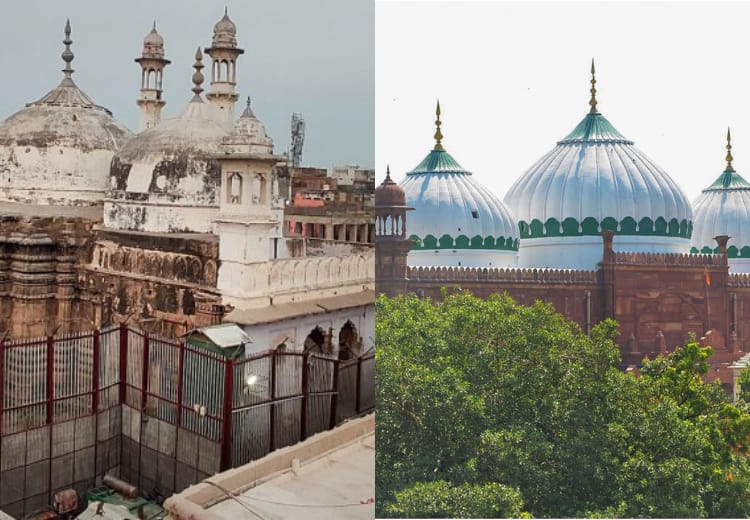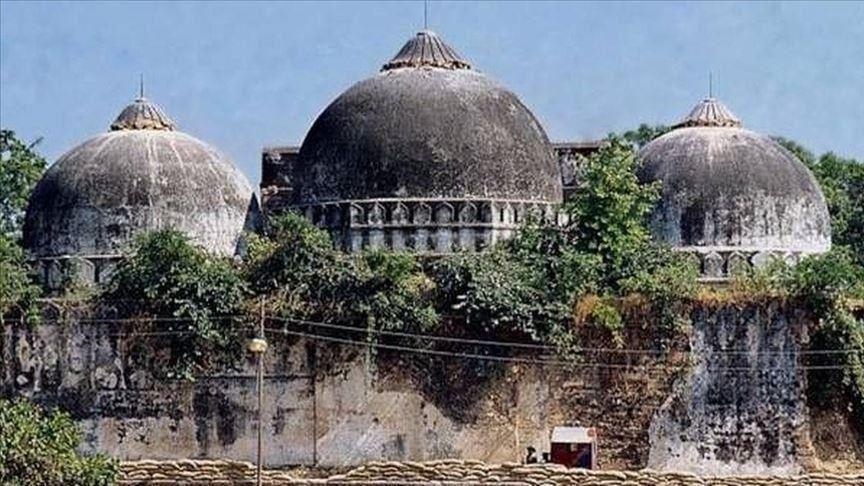– Abu Zujjaj
Since the independence of India, numerous questions have been raised regarding the cultural identity and existence of Muslims. From the Congress era itself, actions against Muslims have not been hidden from anyone, but over the past decade, the atmosphere of hatred being created against Muslims is unprecedented in India’s history. Not only at the governmental level but also through various TV shows, newspapers, magazines, and religious gatherings, spreading hatred against Muslims has become a common practice. Disrespectful remarks against the Prophet (PBUH) are not only promoted but everything related to Islam is subjected to scorn and ridicule. Recently, there has been a series of hate-filled speeches about mosques, continuing day and night. Be it the mosque in Sambhal, the Atala Mosque in Jaunpur, the Gyanvapi mosque issue, or the baseless and false claims regarding the shrine of Ajmer Sharif—whether it is the Adhai Din ki Masjid in Ajmer or the Shahi Masjid in the capital Delhi—all these are part of the same pattern that began with the demolition of the Babri Masjid. These incidents are part of a plan to replicate the history of Spain, about which wise individuals have been warning.

Gyanvapi Mosque (Varanasi) & Shahi Eidgah (Mathura) are the next two mosques on the hitlist of the enemies of Islam after Babri Masjid.
The first phase of this began with the claim of Ram Janmabhoomi at the Babri Masjid site and concluded with the demolition of the Babri Masjid. During this phase, the Muslim leadership silently agreed to the opening of the locks of the Babri Masjid under the pretext of suppressing the Bilkis Bano case. They assumed that showing leniency and compromise over the Babri Masjid issue would prolong the existence of Muslims in India. However, history bears witness that while this approach may have extended the physical presence of Muslims by a few years, it pushed the community into a chasm of intellectual and ideological suicide, leading to further decline.
However, the story of the Babri Masjid did not end with its demolition. Instead, it entered a second phase, marked by prolonged legal battles and court-mediated compromises. In this phase, Muslim leadership was either coerced into submission or forced to adopt intellectual and ideological retreat. They assured acceptance of every court decision as if these verdicts were divine revelations brought by the Angel Jibreel A.S. If the leadership had declared that they would accept every decision made with justice, it would have been somewhat understandable. But our leadership lacked the courage to represent the community truthfully.
With the court’s decision to allow the construction of the Ram Temple at the Babri Masjid site, the conflict entered its third phase. This phase fades into the uncertainties of the future, and it is too early to predict whether the Muslim community, as an entity, will act culpably or sincerely in the times to come.

Shaheed Babri Masjid
While Muslims in India grapple with these challenges, the broader Muslim world faces its own trials and tribulations. Gaza has been turned into a jungle of living and dead corpses. Lebanon is in a state of war. The community, once a supporter of the hungry and destitute, is now itself helpless and forced into misery. The situation in Palestine brings tears of blood to every compassionate heart. Despite all the massacres, aerial and ground attacks by Israel persist. These conditions are disheartening for Muslims, but it is worth noting that despite such widespread killings, Israel has not achieved its desired objectives. Instead, the threats to Israel’s existence have increased significantly, and Israel is now fearful for its survival. This is why it is opening employment opportunities for people from other countries, while its own citizens are leaving the oppressive state for safer havens. These scenes convey insightful messages to those who trust in God.
In one Middle Eastern country, Syria, a hopeful change has emerged. The half-century-long dynastic rule of Bashar al-Assad has been overturned—a regime that brought shame even to history’s greatest tyrants with its oppression and brutality. Under Bashar’s rule, detention centres were created where inhumane atrocities were committed, penning a history that revived memories of the horrors of Guantanamo Bay and Abu Ghraib. Now that Bashar’s oppressive reign has ended, prisoners are being released from detention centres, sharing firsthand accounts of their experiences, confirming the unforgivable crimes of Bashar. Against this backdrop, the Muslim community has attached high expectations to ‘Al-Joulani’ and his resistance group. However, it is crucial to proceed cautiously and allow time for further developments before forming any definitive opinions, keeping in mind both the positive and negative aspects.
Palestine and Syria are going through a major change, albeit a differing change
This world has entered its final stage of existence, and according to the sayings of the Prophet Muhammad (PBUH), “This is the era of tribulations, where darkness envelops everything like the night. A person will wake up as a believer and sleep as a disbeliever, or sleep as a believer and wake up as a disbeliever. People will sell their religion for a small worldly gain.” (Sahih Muslim) In such absolute darkness, maintaining the direction of one’s journey becomes critical, as a moment’s negligence can misguide the entire path. Therefore, we must tread with utmost caution, taking each step deliberately, relying on God’s help, and considering Him as the sole guide of our lives as we move towards our ultimate destination.
Look! The words of the Prophet Muhammad (PBUH) are heralding the dominance of Islam:
“And whoever allies with Allah, His Messenger, and those who believe, should know that the party of Allah will certainly prevail.”
Insha’Allah

